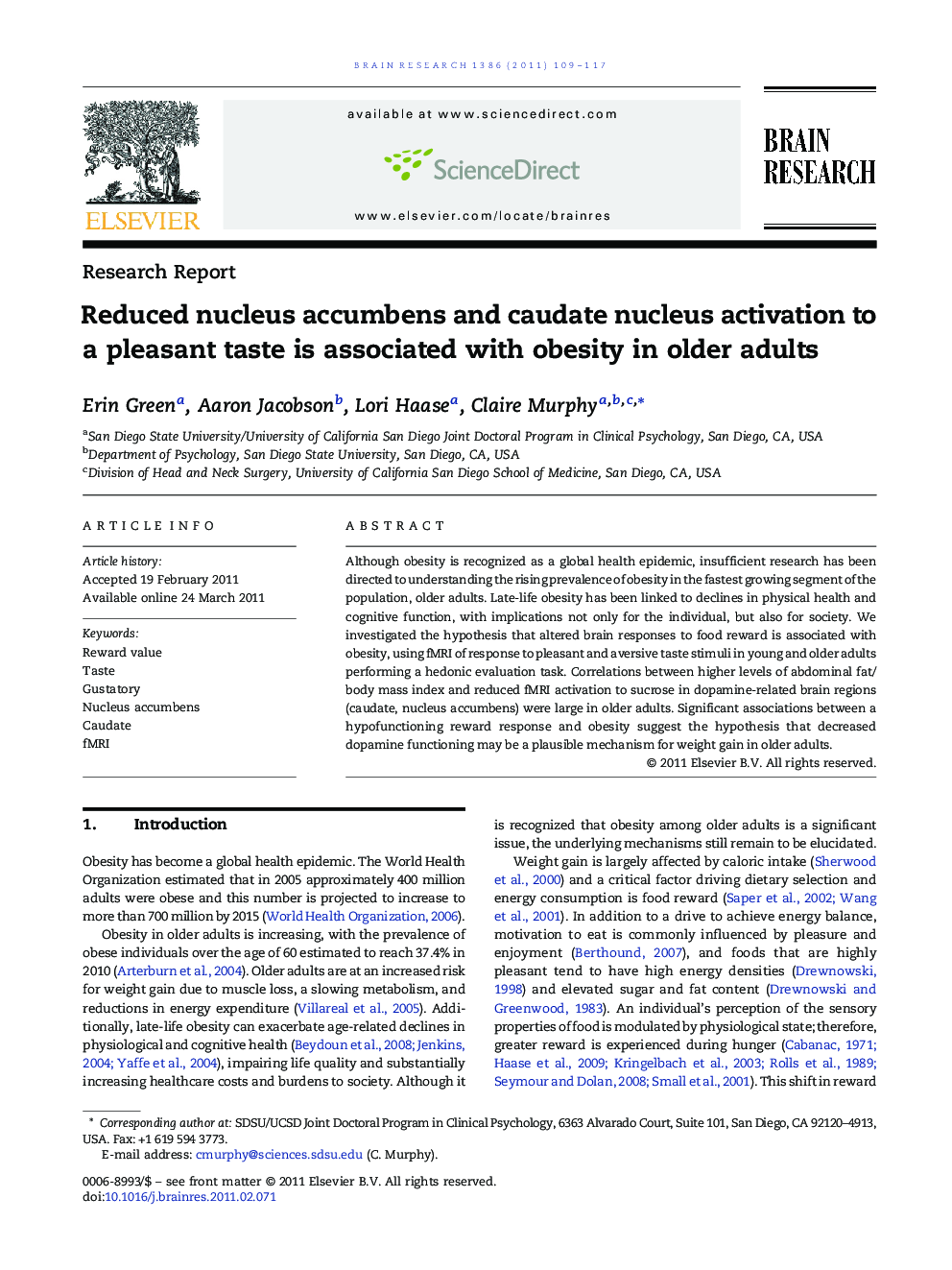| Article ID | Journal | Published Year | Pages | File Type |
|---|---|---|---|---|
| 4326059 | Brain Research | 2011 | 9 Pages |
Although obesity is recognized as a global health epidemic, insufficient research has been directed to understanding the rising prevalence of obesity in the fastest growing segment of the population, older adults. Late-life obesity has been linked to declines in physical health and cognitive function, with implications not only for the individual, but also for society. We investigated the hypothesis that altered brain responses to food reward is associated with obesity, using fMRI of response to pleasant and aversive taste stimuli in young and older adults performing a hedonic evaluation task. Correlations between higher levels of abdominal fat/body mass index and reduced fMRI activation to sucrose in dopamine-related brain regions (caudate, nucleus accumbens) were large in older adults. Significant associations between a hypofunctioning reward response and obesity suggest the hypothesis that decreased dopamine functioning may be a plausible mechanism for weight gain in older adults.
Research Highlights► BMI predicts fMRI activity in nucleus accumbens in older adults. ► BMI and abdominal fat predict fMRI activity in the caudate in older adults. ► Associations are observed in the hunger state, in response to sucrose.
